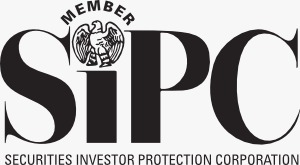GLOSSARY
Broker-dealer
A person or firm that buys and sells securities on the behalf of its customers (thus acting as
a broker, or agent) or for its own account (acting as a dealer, or principal).
ESG
Stands for Environmental, Social, and (corporate) Governance. A lens that investors use to better understand companies and how their performance and operations affect these three areas. Fennel uses ESG data provided by
Refinitiv.
ESG score
ESG scores are designed to measure a company’s relative ESG performance,
within the company’s industry group (for environmental and social) and country of incorporation (for
governance). Scores cover 10 main themes including emissions, human rights, shareholder rights and so on.
Fennel uses ESG scores from Refinitiv, for more on Refinitiv’s methodology,
click here.
FINRA
Stands for Financial Industry
Regulatory Authority. A self-regulatory organization that regulates brokerage firms and
the securities industry.
Payment for order flow
A revenue stream for brokerages that has received increased attention lately. When used,
brokerages direct their customers' orders through wholesale market makers, high-frequency trading (HFT)
firms or other third-party execution firms, and, in return, receive compensation for the order flow.
Retail investor
An individual who invests in securities on their own behalf, as opposed to an institutional
investor, which pools money on the behalf of others.
SEC
Stands for the Securities and Exchange
Commission, an independent, federal government agency with a mission to protect
investors, maintain fair, orderly and efficient securities markets, and to facilitate capital formation
in the primary market.
Securities lending
The practice of loaning out stocks or other securities to another investor or firm, who in
return pays a fee back to the lender. The borrower also has a contractual obligation to return the
securities upon request, or at the end of an agreed period of time. Securities lending is most often
used in order to facilitate short sales, where an investor sells a security they do not own with the
hope to profit by purchasing it later at a lower price.
Shareholder
A person or entity who owns shares in a corporation. A shareholder is entitled to certain
rights, which usually include the right to vote on important issues, attend shareholders’ meetings and
to receive dividends.
Shareholder proposal
A proposal that a specific shareholder, or group of shareholders, puts forward to be voted
on during a company’s annual shareholder meeting (as distinct from ballot measures put forward by a
company’s board of directors).
SIPC
Fennel is a member of SIPC, which protects securities customers of its members up to $500,000 (including $250,000 for claims for cash). Explanatory brochure available upon request or at www.sipc.org.

